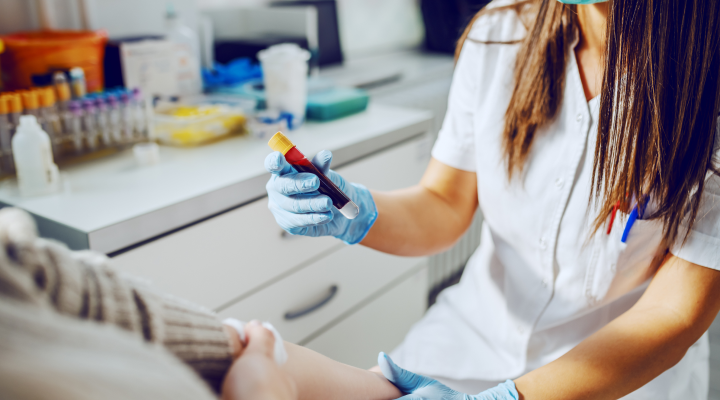Understanding Your Lab Results
Lab tests throughout your pregnancy help monitor you and your baby’s health, and catch and solve problems early.
Testing before you’re pregnant
People who are working with a health care provider to plan a pregnancy, including those using an egg donor, sperm donor, or IVF, often undergo testing before pregnancy.
Testing in early pregnancy
Several routine lab tests are done early in pregnancy, including:
- complete blood count (CBC), to look for anemia, white blood cells and problems with blood clotting.
- blood type and Rh factor
- urinalysis
- urine culture
Also, pregnant women typically are tested for specific diseases and infections early in pregnancy:
- Immunity to rubella and chickenpox
- Hepatitis B and hepatitis C
- Human immunodeficiency virus (HIV)
- Other sexually transmitted infections (STIs)

What do my results mean?
Tests early in pregnancy help your doctor catch and solve problems early in your pregnancy. Your OB will explain your results to you, and talk through next steps in case of any issues.
If you’d like to read more, this guide from the American College of Obstetricians and Gynecologists offers a complete breakdown of all tests conducted early in pregnancy. LEARN MORE
Tests done later in your pregnancy
Most people will have two ultrasounds during pregnancy — one early on to confirm pregnancy, and another at 20 weeks to monitor your baby’s growth and development and check for any complications.
Later in pregnancy, you will be screened for:
- Glucose, or blood sugar, to check for risk of gestational diabetes
- Group B streptococcus (GBS), a bacteria that naturally lives in your body that can be passed to your baby during labor
Genetic testing for birth defects
Screening for birth defects begins early in your pregnancy — or before you even become pregnant—by assessing your risk factors. Your OB may give you a list of questions to find out whether you have risk factors. If you are worried about risk factors, be sure to ask your OB. If you do have risk factors, you might want to see a genetic counselor for more detailed information and testing.
Things that can increase your risk of birth defects include:
- Having a personal or family history of birth defects
- Belonging to certain ethnic groups
- Being 35 or older
- Having diabetes before pregnancy
You are not required to screen or test for birth defects; it is a personal choice. Knowing about birth defects ahead of time allows you to choose whether to continue the pregnancy, and gives you time to plan your baby’s care team if more support is needed.
Additional Reading
Exploring Second Opinions
Going to a second doctor about pregnancy-related issues or questions is your right.
Exploring Second Opinions 
Black Maternal Health
Black mothers have been found to face barriers to equitable maternal care.
Black Maternal Health 
Risk Factors & Chronic Disease
Learn about specific health challenges pregnant people face.
